Volunteers move quickly to tie down tent poles and tarps against the strong gusts of wind. These tents act as medical rooms for furry companions stopping by for veterinary services and animal healthcare at a pop-up clinic in Athens in late September.
Why It’s Newsworthy: Prices for veterinary services continue to increase across the country, making it difficult for lower-income households, and even college students, to afford their pet’s healthcare.
At the beginning of every month, Athens locals flock to various locations around town for the pop-up clinic, run by Lisa Milot, professor of canine welfare law at the University of Georgia and director of Athenspets, a volunteer 501(c)(3) group that helps the animals at Athens-Clarke County Animal Services.
The pop-up clinic brings together UGA’s Law Practicum in Animal Welfare students and Athenspets volunteers to provide vaccinations and microchipping.
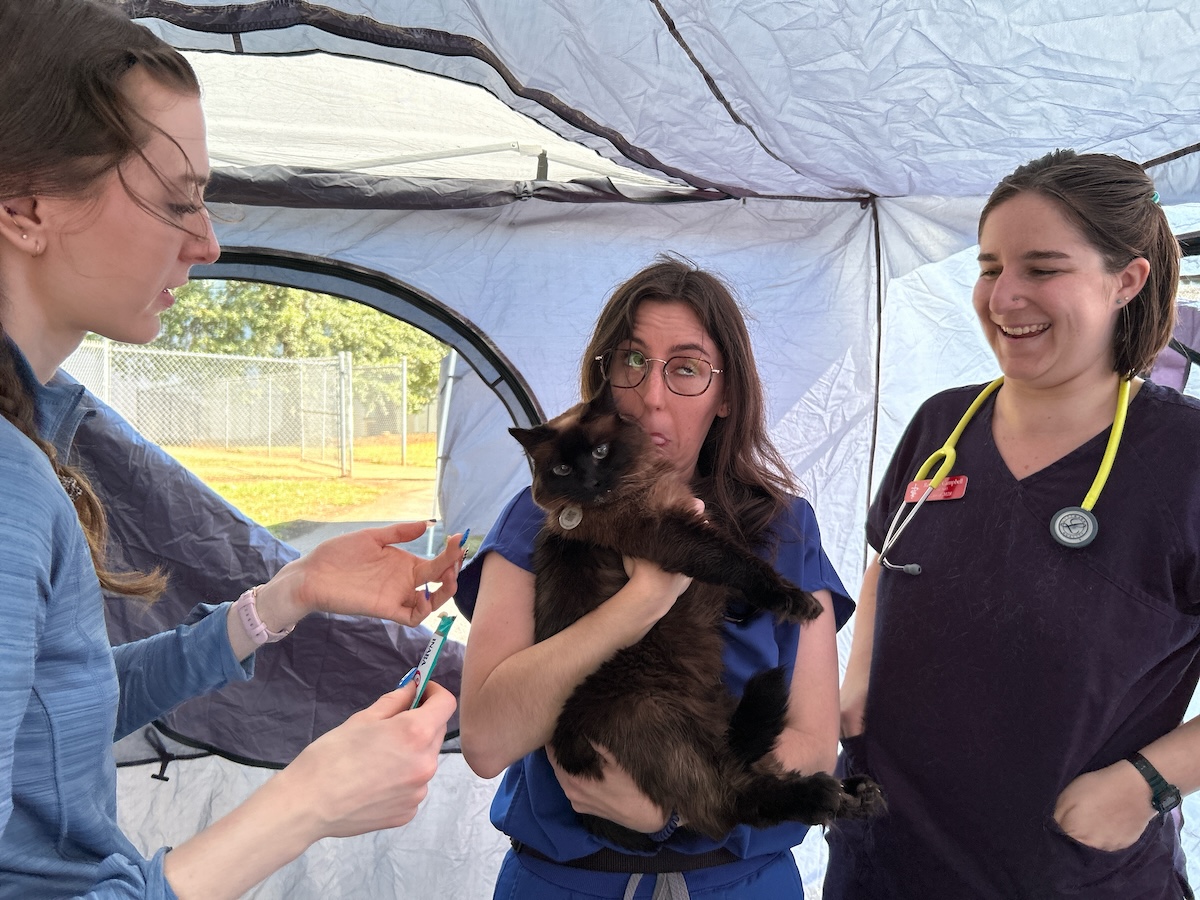
This month’s event is in a parking lot off 410 McKinley Drive. While people can sign up online, it is also open for walk-ins, as Milot is attempting to make animal health care as accessible as possible.
“There was one woman, who, when we told her [Athenspets] could pay to have her dog neutered, she went down on her knees… She was so happy because she’d been having these issues with him that she knew were tied to the fact that he was intact,” Milot said.
Keeping Overcrowding Low
For Milot, being able to see the impact of providing vet care, like spaying or neutering, at little to no cost, makes all the difference when considering animal welfare in the community — as well as keeping overcrowding down in animal shelters.
Keeping animal reproduction low can prevent overcrowding in shelters. Athenspets has served over 1,000 animals this year in the shelter and has spayed or neutered around 508 animals out in the community. However, they are still struggling to provide services to lower-income communities in Athens due to accessibility, and the overall increasing cost of animal health care.
Americans spent an estimated $38 billion on health care and related services for pets in 2023, and it’s projected to continue to increase by 8% by the end of 2024.
Milot sees that people are less likely to donate or support costs for a procedure such as spay or neuter.
“I think it’s kind of an amorphous problem for a lot of people,” Milot says, “they don’t see it in front of them. A medical case, for example, people will donate to readily, whereas for spay neuters, it’s harder to see how that donation saves a life — but it does.”
In Athens alone, trips to the vet can add up quickly with spay/neuter surgeries averaging $170, vaccines averaging $17 per shot, and physical exams averaging $46. For many low-income residents, these costs are not feasible, especially if something more severe happens to their pet.
Having events like the pop-up clinics that offer health care services at a reduced cost makes it easier to care for pets.
Cost of Animal Health Care
Karlie Reed, a University of Georgia law student and volunteer at the pop-up clinic this month, decided to help not only because she loves being around animals, but because she understands firsthand the importance of providing low-cost animal health care.
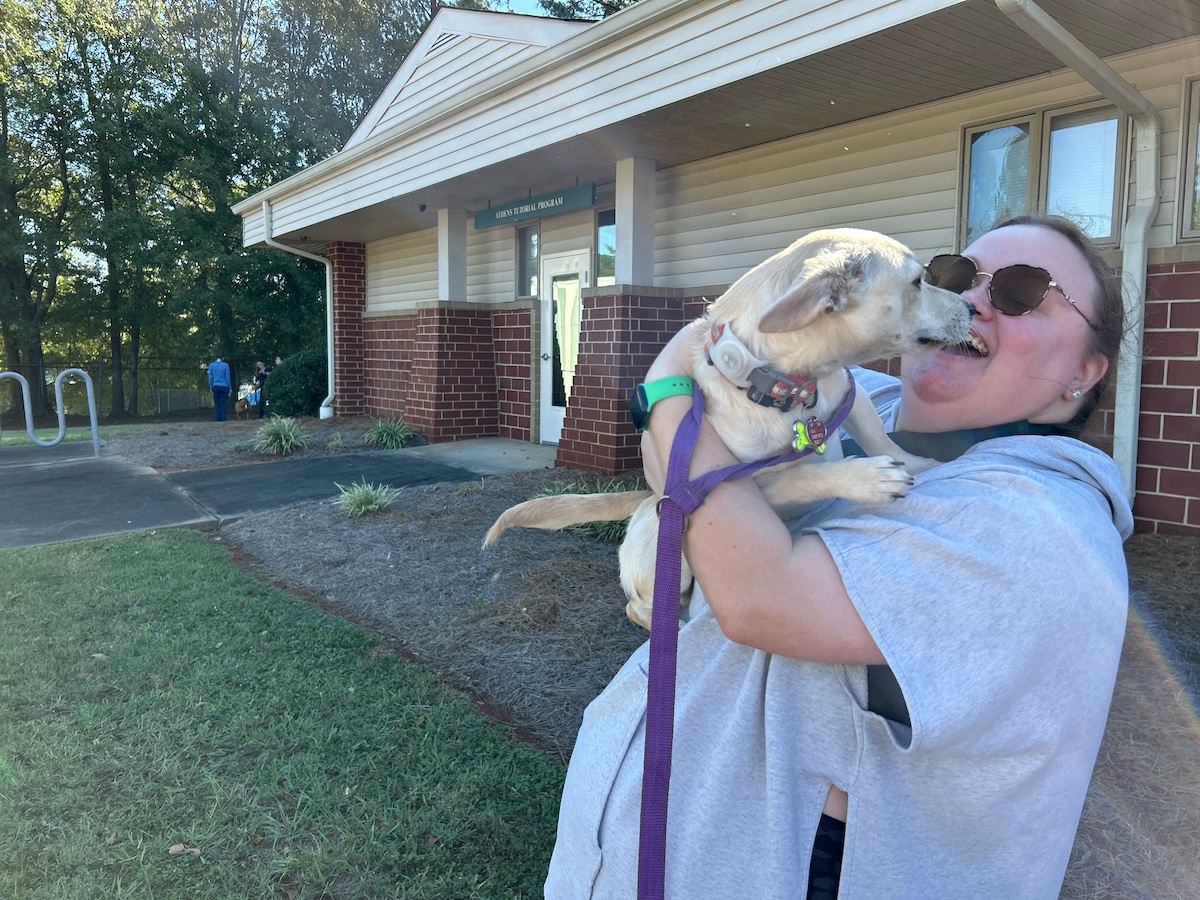
One of Reed’s dogs was diagnosed with cancer, leaving Reed to have to pay $4,000 for her dog’s chemotherapy. Her other dog had the equivalent of an ACL tear in two knees, costing $9,000 to fix. Reed paid everything out of pocket because she did not have pet insurance.
“I used to think insurance was a waste of money,” Reed laughs, “it’s not.”
Athenspets gives out information to residents about various animal welfare programs, like pet insurance plans ranging from $25 to $50 a month. However, even that can seem like a hassle for most lower-income households.
Athens resident, Laura Rueter, is a recurring visitor at the pop-up events. At this past event, Rueter brought her dog, Baby, in for vaccines. She would never want to give away her dog, but she also knows that health care isn’t cheap.
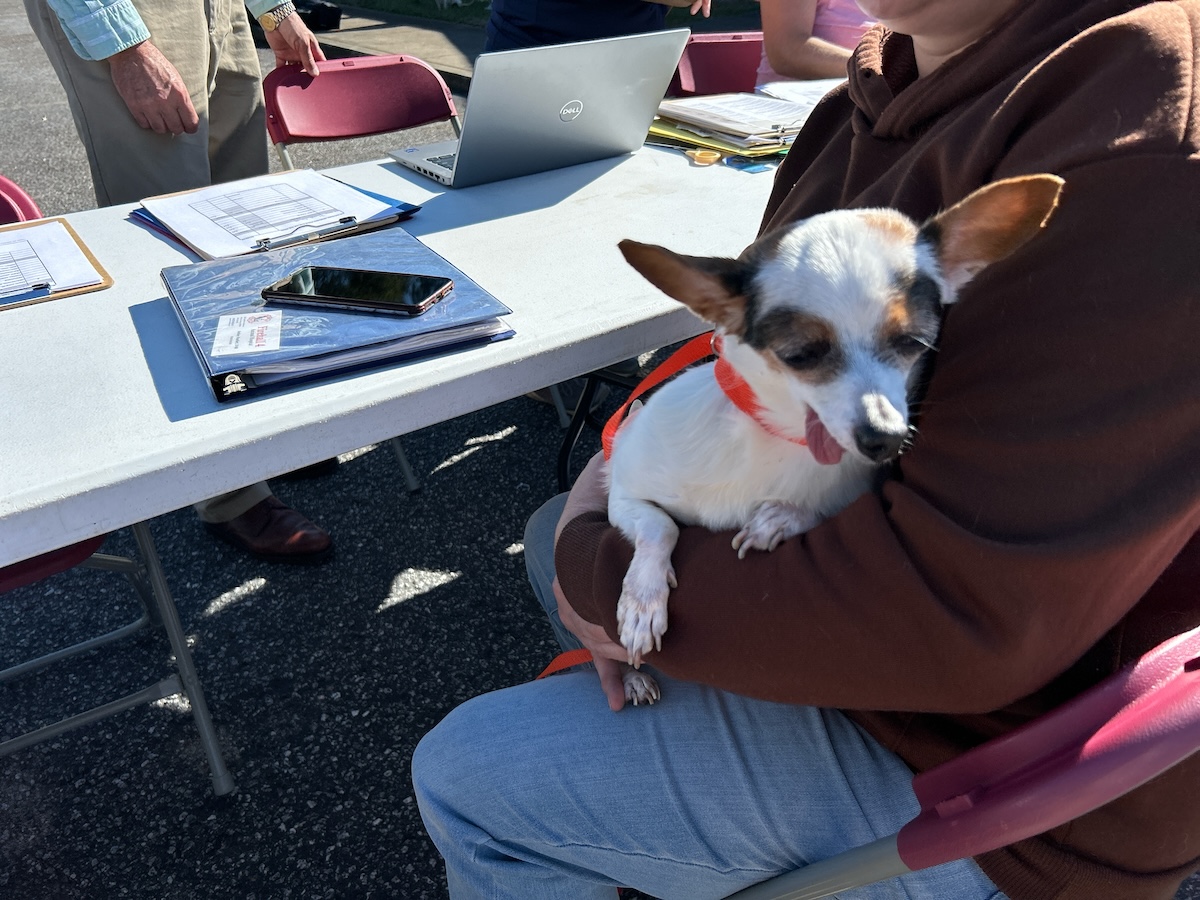
“When you don’t have a lot of money, but you still want to care for your pets, you know… a lot of people might give their pets away when they can’t provide for them. So [The pop-up clinic] helps us keep our pets,” Reuter said.
Mary Ryan Howarth is a fourth-year student majoring in journalism.






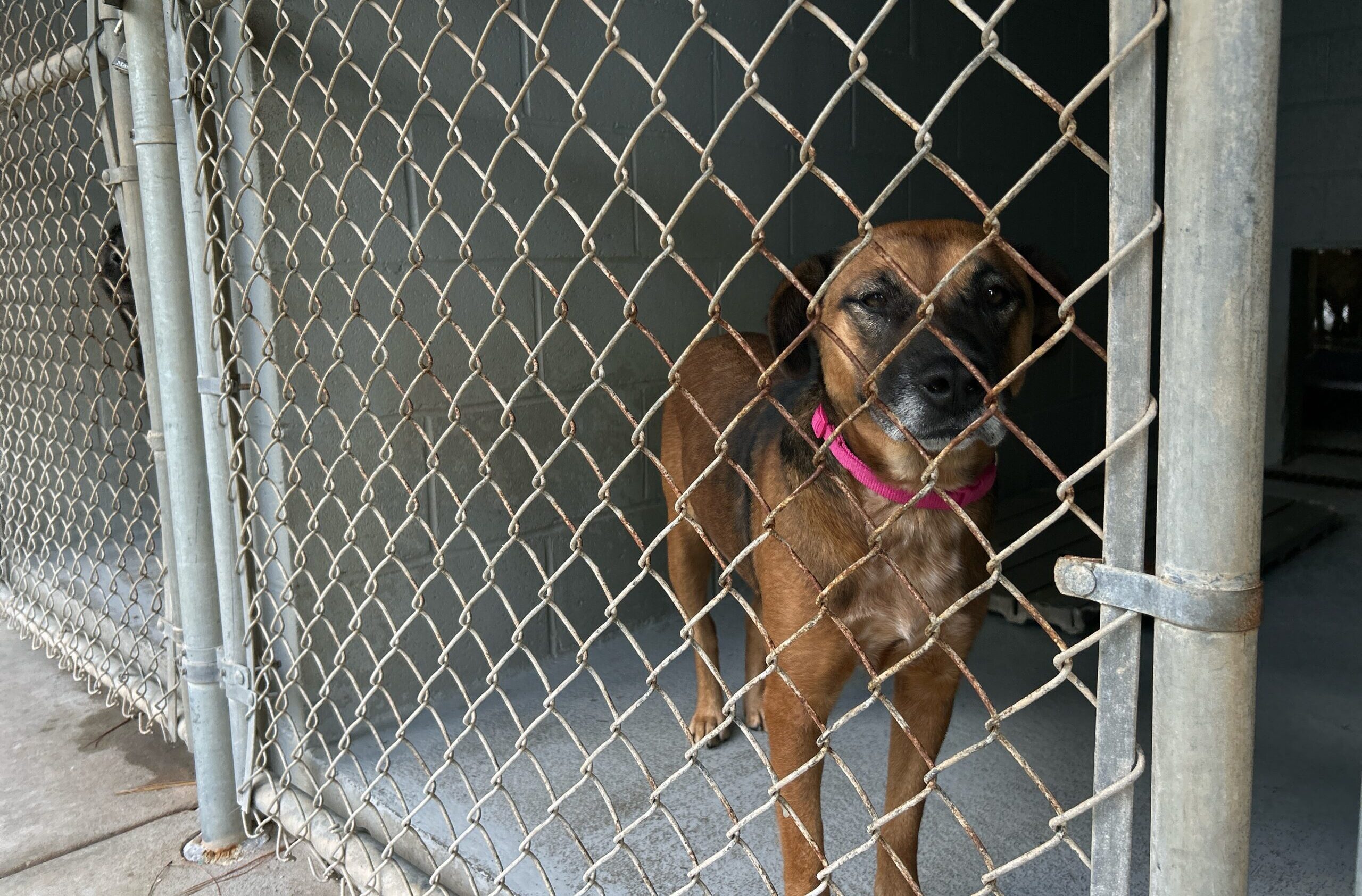
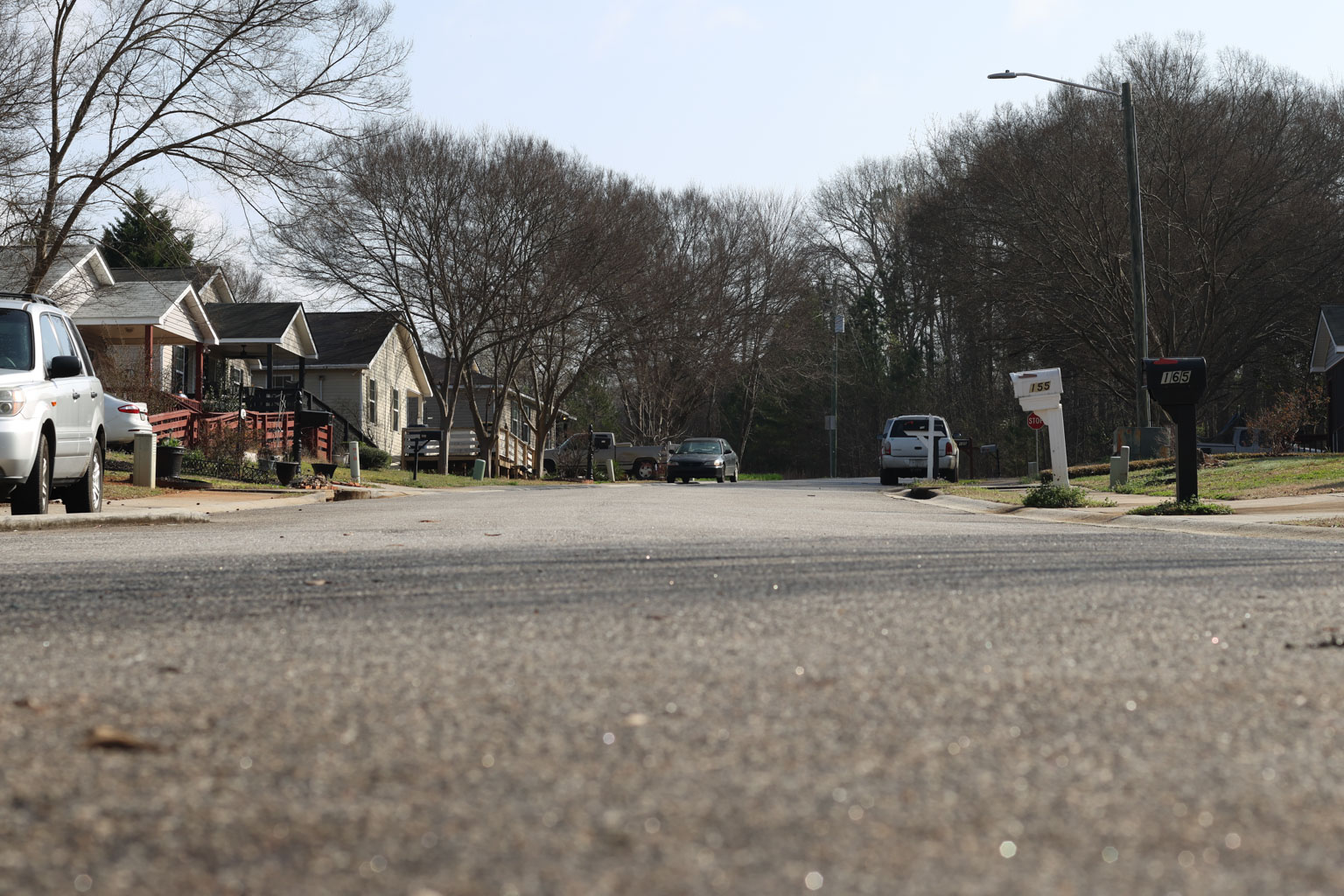
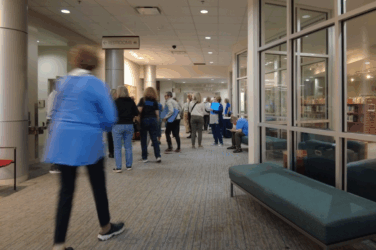


Show Comments (2)